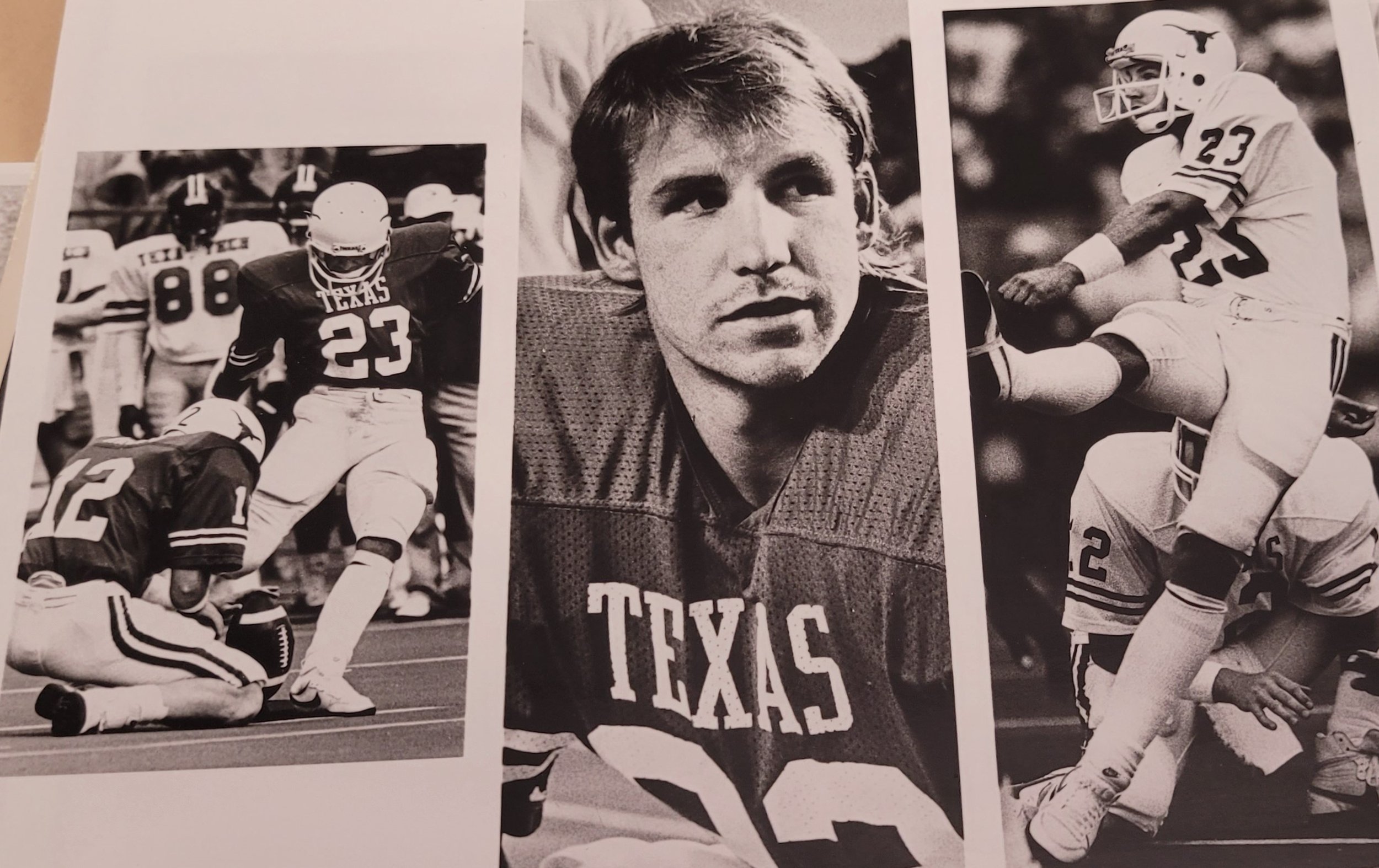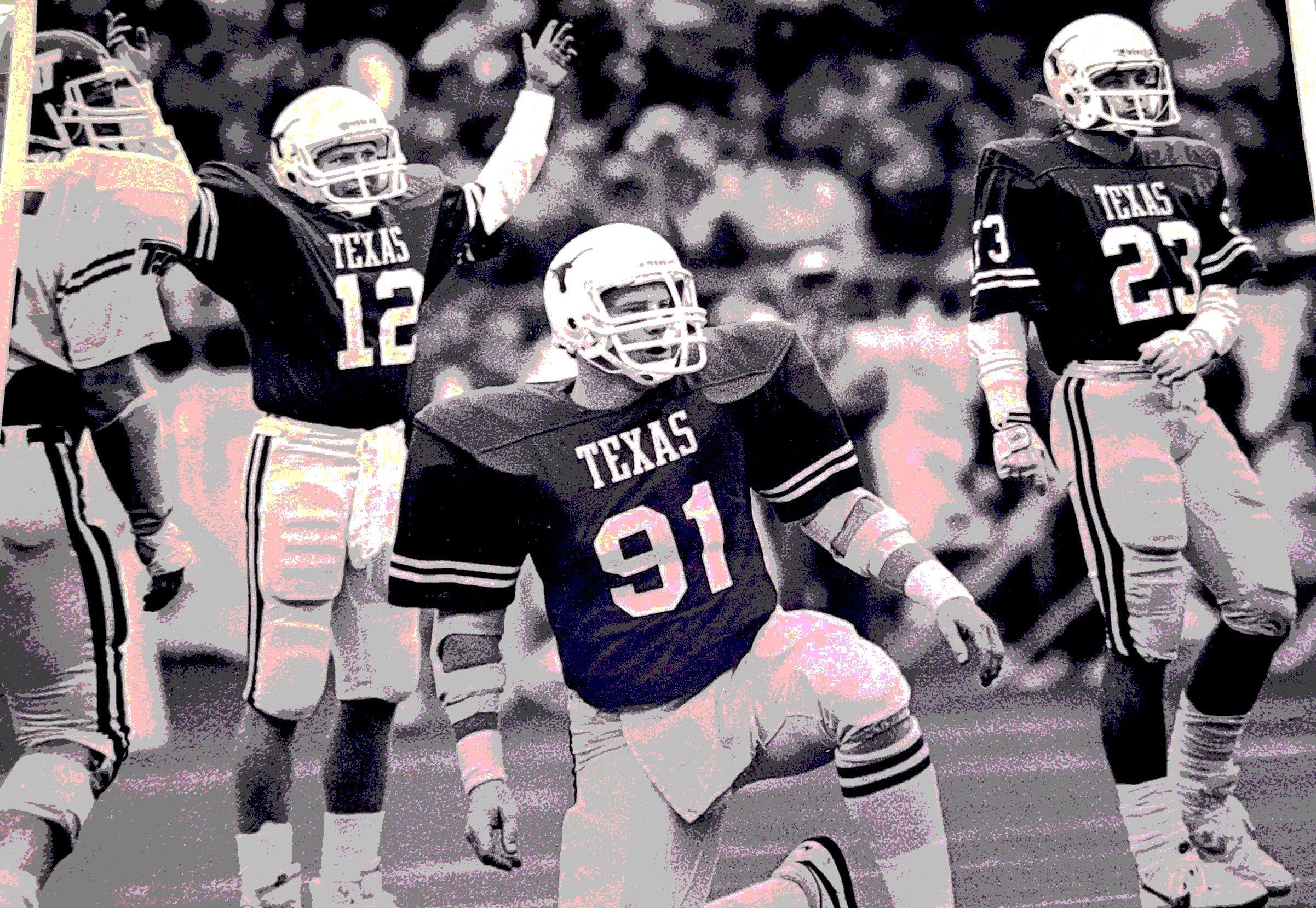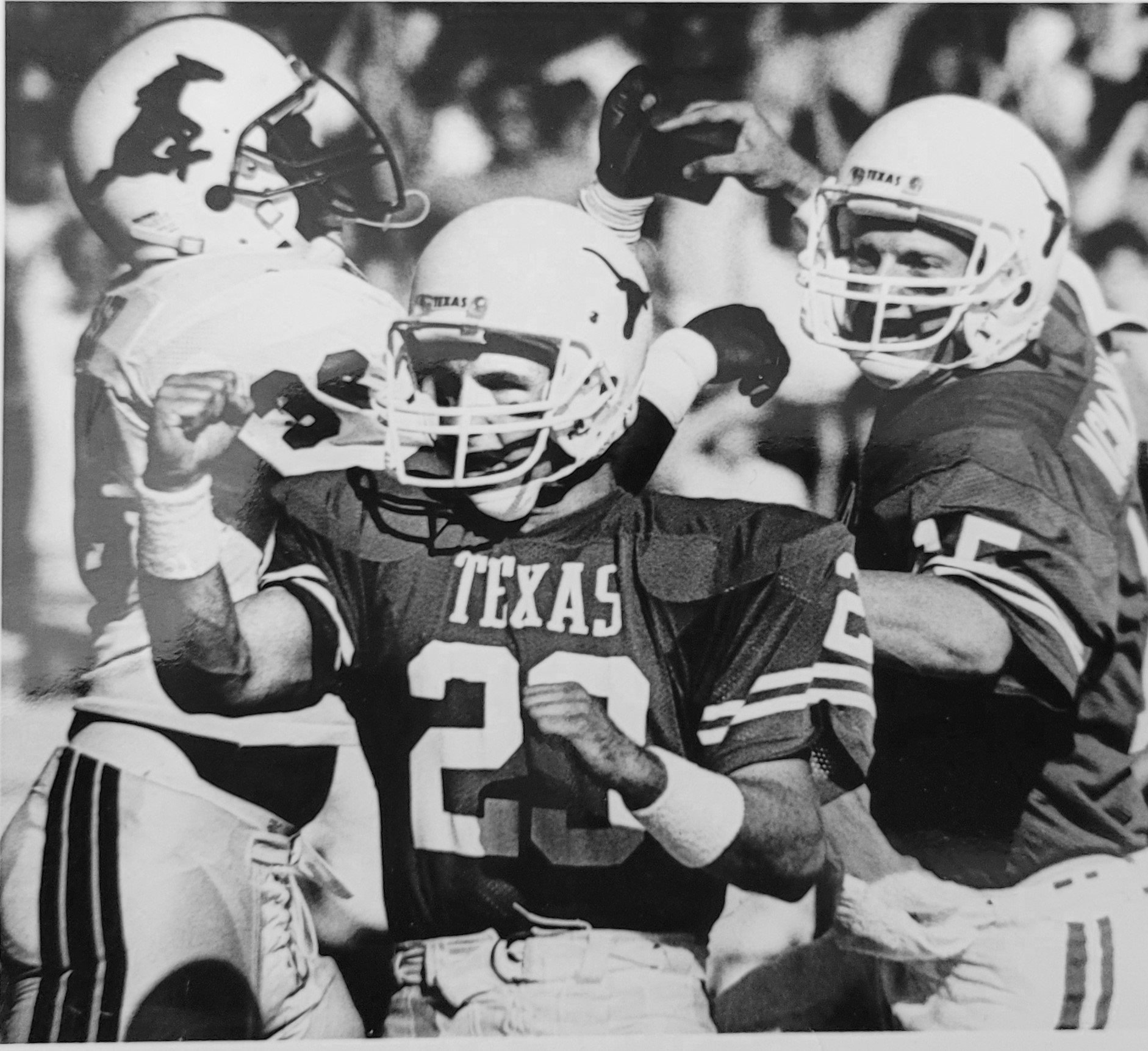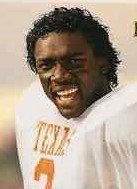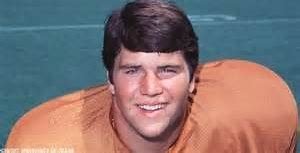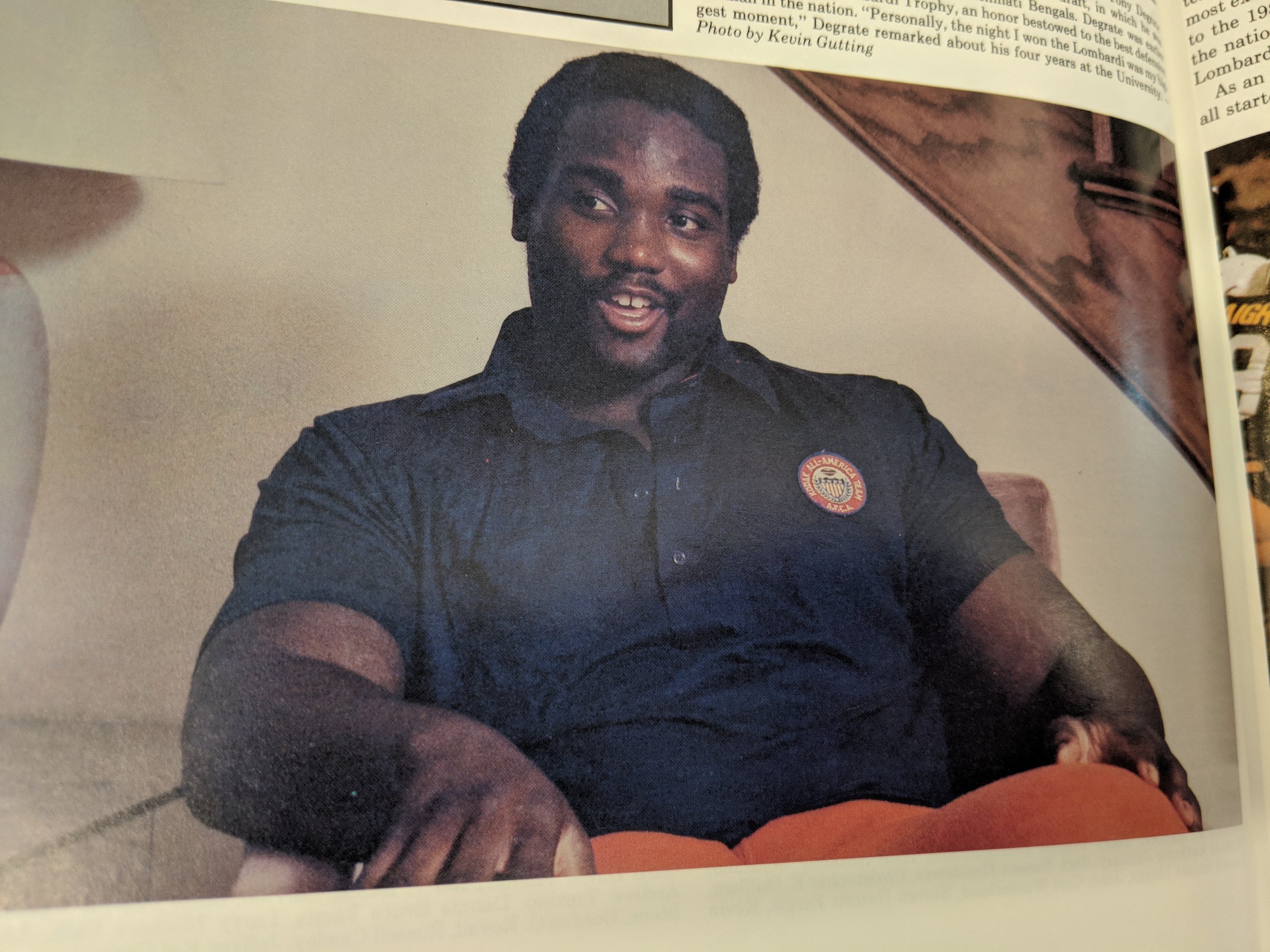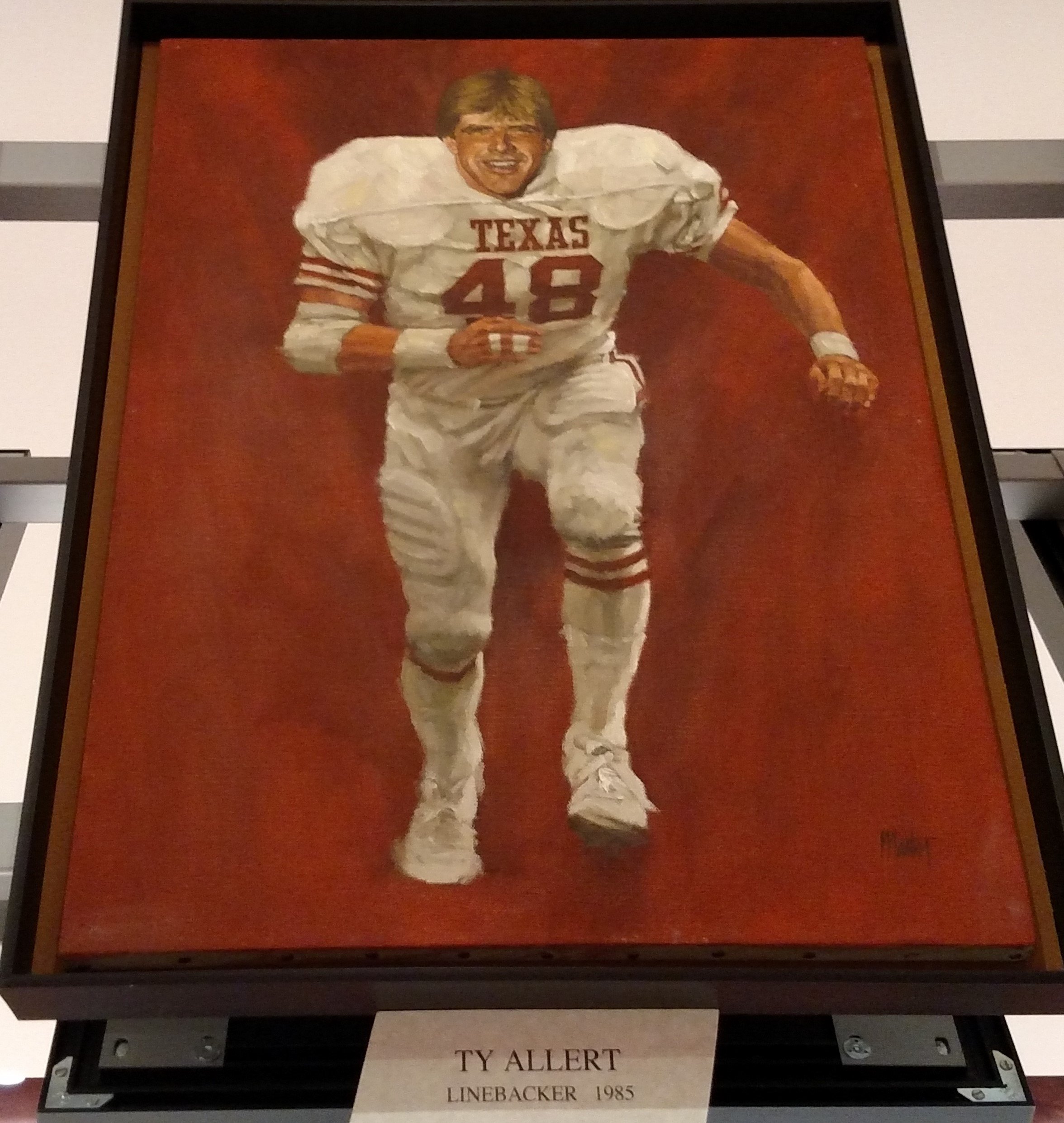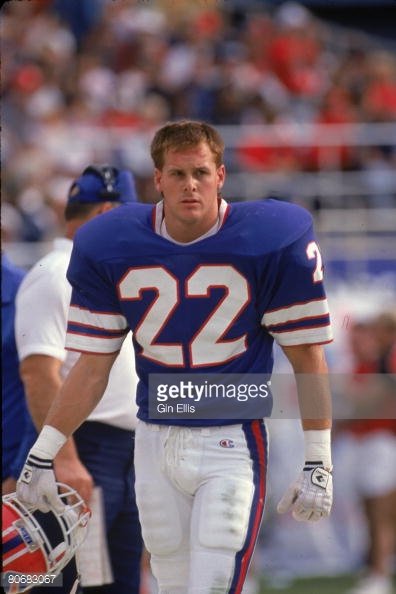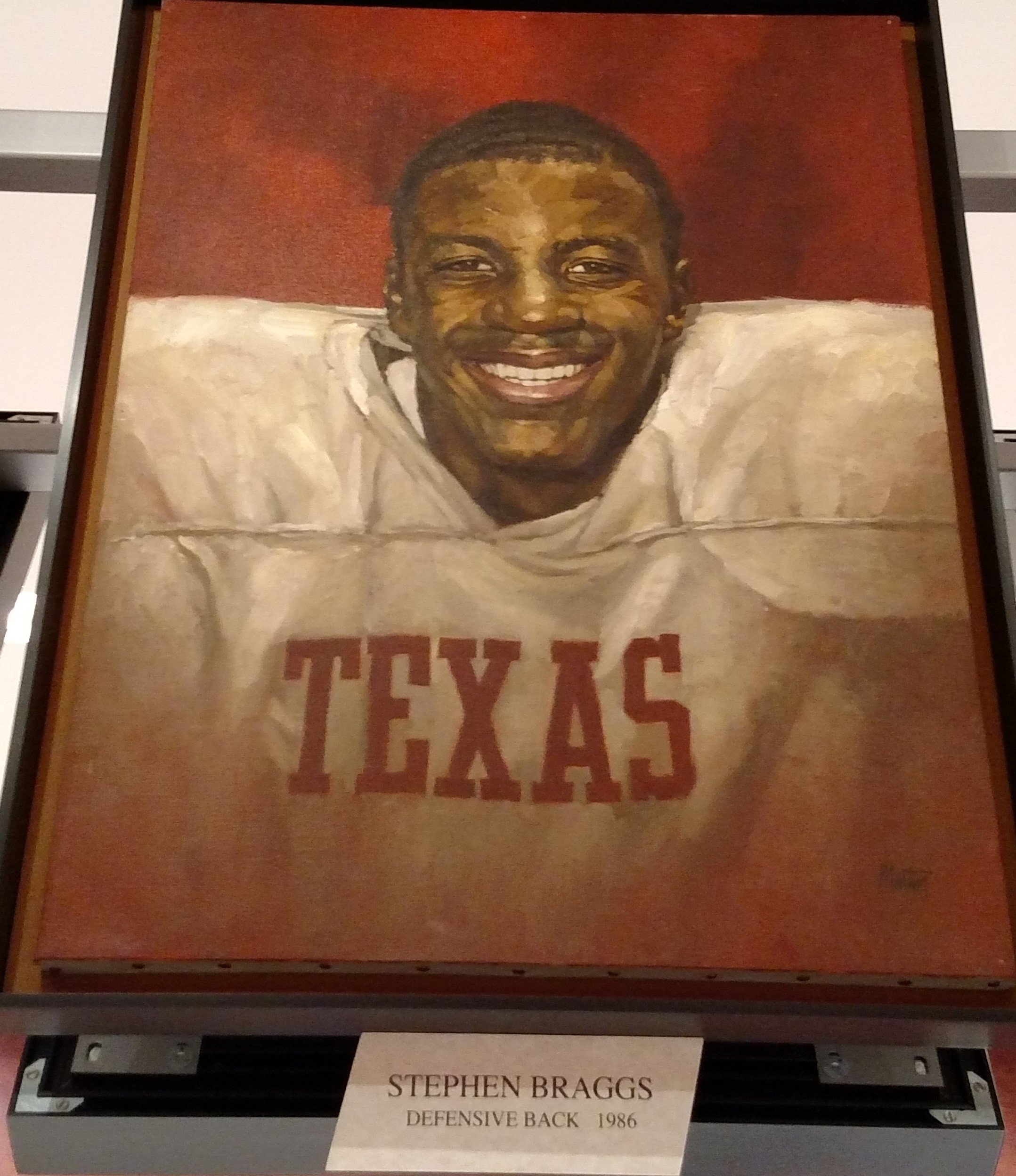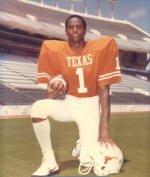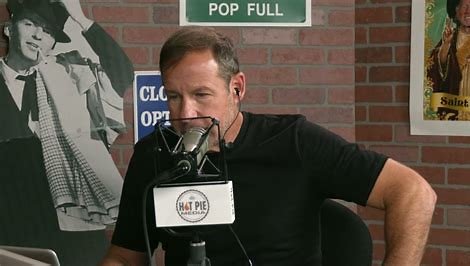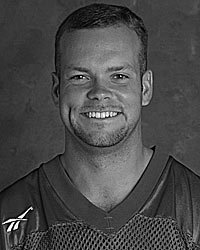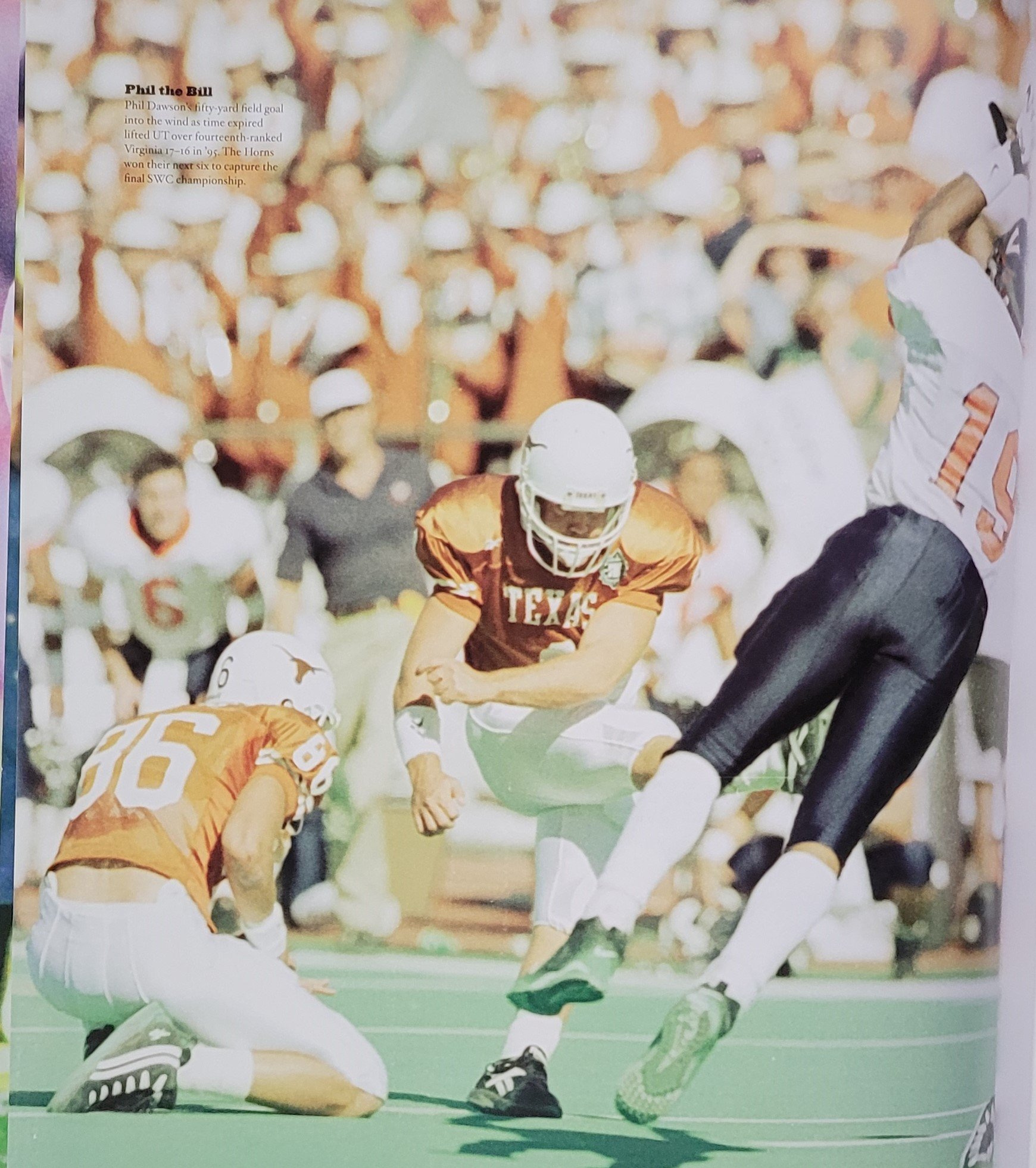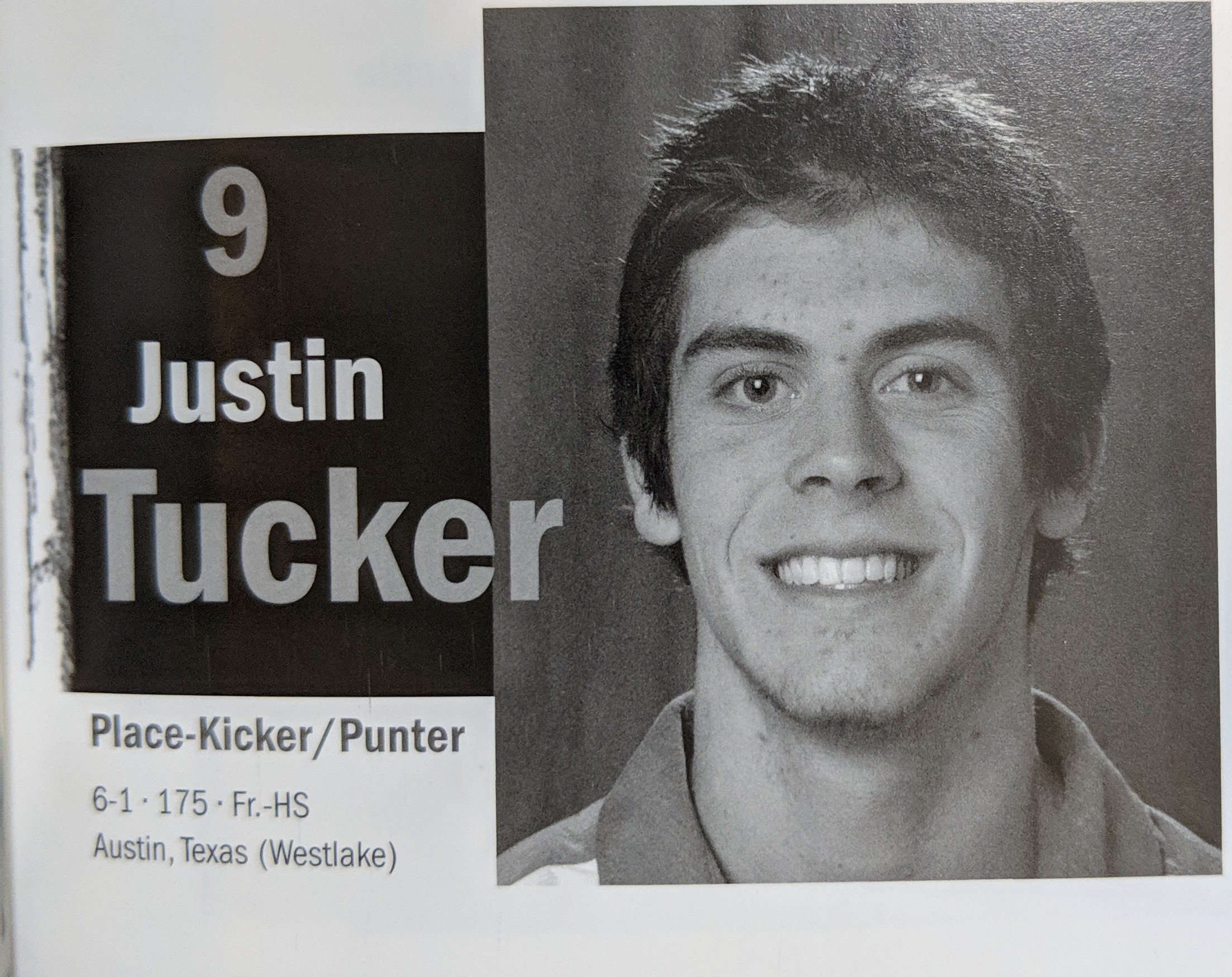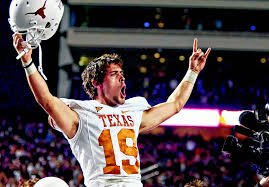Comments from Jeff Ward
Jeff ward says college football can teach you these outstanding lessons that come in very brutal ways. You start to learn what it's all about. And that is the same people who would buy you beer on Friday are the same people who will call a college show on Monday and and complain that about what a bum you are. So you learn this beautiful lesson. I got my nose bloodied enough to know that you don't take people that seriously.
Comments from Jeff pre- NIL
When you cut through it all ward said you're talking about pretty average 19 year old guys who are stuck in the middle of this giant publicity machine. And everybody is having a good time around them. I'm all for people making a buck edit but in the end that 19 year old it's going to be chewed up and spit out and I have no idea what the hell has happened.
Skip forward to 2023 - college players are no long chewed up and spit out instead the Universities recruiting them now are.
Introduction by Larry Carlson of THE GAME CHANGER
All-American Kicker Jeff Ward (Still) Speaks Out
There are likely many Americans who know Michael Strahan only as a cuddly and personable morning TV host. And those who think Joe Namath is just some old guy who reminds Medicare recipients to check their zip codes for extra benefits. Strange as it might seem, not all folks know about Act I for these gents.
Similarly, there have undoubtedly been tens of thousands, likely many, many more who know Jeff Ward as strictly a provocative, compelling talk show host. The man who had listeners cussing and discussing him and his takes on current events for twenty years on KLBJ has since worked in a similar capacity for Gannett/Austin American-Statesman and now delivers tasty daily content for Hot Pie Media. His mantra is this: "My only agenda is to make you think."
But in another time, going back almost four decades, Jeff Ward was the Texas Longhorns leading scorer for an unprecedented four straight football seasons. From the pinnacle of an 11-0 regular season in '83 to the depths of a losing senior season in '86, UT's kicker was the only positive constant during a tumultuous era.
Consider this. The '83 UT defensive unit alone featured nine seniors drafted the next spring. And All-America safety Jerry Gray and future Lombardi Award winner Tony Degrate were just juniors, ready to return. All those heavy hitters plus Jeff Ward drove Texas tantalizingly close to raking in all the national marbles when he was a freshman. Ward's 15 field goals often provided the W's, by the narrowest of margins.
The term, "Most Valuable Player" is often used incorrectly, masquerading for the "Most Outstanding Player" designation. Though Jeff Ward never carted off a team MVP plaque while on the Forty Acres, he was undoubtedly the most valuable individual in burnt orange for four seasons. In fact, it's hard to imagine any career Longhorn who didn't play the quarterback position ever having the direct impact on as many wins as did Ward. The All-American, three-time All-SWC selection and team captain provided field goals that were the difference in 13 of the 32 wins Texas recorded during his playing days. His national record number of ten game-winning field goals still stands, tied but not bettered.
When Ward finished his UT career, he owned most of the single-game and career-kicking records except for distance. Russell Erxleben's monster 67-yarder in 1977 was tied the same season but endures. Ward slammed home five long-range shots from more than fifty yards and had plenty more from beyond forty. Jeff's top virtuoso performance dates to 1985 in wild, hostile Fayetteville where he later recalled his amusement at the sight of whiskey bottles sailed from the upper deck. Hog fans were not toasting the Horns' kicker and his magnificent five-FG game that deflated a sellout crowd and defeated a ranked, heavily favored Arkansas team, 15-13.
Though he was a late-round draft pick of the Dallas Cowboys in 1987, Ward didn't make his name in professional football He would instead build an image outside the pigskin population, not as a jock-turned-analyst but as an Austin radio host who wished to focus on issues he saw as larger than those at Bellmont Hall and old Memorial Stadium. No former Texas player has forged a sturdier, built-to-last public persona than has Ward. Hundreds, even thousands of Longhorn lettermen have discreetly gone on to achieve excellence in medicine, law, business, and myriad other fields. But Ward, first with his clutch kicking, then with his penetrating, issue-oriented public voice, has never cruised demurely down Quiet Boulevard. He does not suffer fools but has a wry sense of humor on-air and even in consenting to time-consuming interviews. When Ward got a look at TLSN's laundry list of questions, he subtly assessed the upcoming interview as "thorough." Later, he jokingly said he feared his responses might rival "War and Peace" for verbiage.
So call him the Tolstoy of Texas football or the Charles Dickens of kickin'. Loquacious, erudite, opinionated, and informed, Jeff Ward always has plenty to say. In this TLSN exclusive, he expounds on names spanning from Akers to Zuckerberg and reflects on a travesty of justice, a fateful NFL strike, an unlikely OU friendship, and Churchillian leadership.
Naturally, Ward has opinions about expensive locker room accouterments, a country club environment, and a puzzling dearth of pro-caliber talent at Texas. All that plus a taste for wine and song and an admission of what haunts him still. Sit back and uncork some vintage Jeff Ward.
1983
TLSN: Your freshman season, 1983, was, well, perfect for you and the Longhorns for four months. And then it wasn't. But first, the good times. How magical was it en route to 11-0?
JEFF: First of all, to put on a Texas uniform was a dream come true for me. I grew up going to Texas games and sitting in the Knothole (north end zone) and jumping over the railing to chase Texas players for autographs.
I was confident enough in my abilities, so the deeper we got into our training camp my first year, the more comfortable and confident I became. You have to realize, I grew up on college and NFL sidelines because my father was a referee for many years, so I'd been exposed to big games and great players at the highest level. I think those experiences served me very well when I became a player. I had been around so many big games, including Texas games that he called, and I had experienced NFL environments, I always felt comfortable on the field. I felt at home.
It (The '83 team) was an awesome collection of talent. Few college teams have ever had so much talent, and it was, arguably, the best defensive team of all time. In fact, I remember calling my Dad one night and telling him that I'm teammates with the best player I've ever seen... Jerry Gray. Even on the amazing defense that we had, Jerry stood out. I've never been around a player with that kind of range, nor a smarter player.
I expected to be on a great team that first year because I had followed the Texas program so closely. Being among the country's best is the exact reason I wanted to play there. I grew up following Texas teams that were always among the best, so when we went 11-0 that year, it wasn't all that unexpected for me or my teammates.
TLSN: In the waning moments of the Cotton Bowl against Georgia (1-2-84), Texas was up, 9-3 on your field goals, You even got tapped on the shoulder by a CBS reporter, ready to interview you as soon as the game ended. Then came UT's infamous fumbled punt and an unlikely 10-9 Bulldog win. I had covered the Texas locker room in the wake of the '77 team's loss to Notre Dame that blew away a national title. It was like a funeral. What was this locker room like?
JEFF: I was about two minutes from being the MVP of the game to finish off an undefeated season. Even with that, I was furious to miss late in the game. It was unforgivable for me. I take a lot of blame for the Cotton Bowl loss. I did then and I still do. I went 18 of 21 that year, and I think at one point I had made 17 in a row, but I had a miss (Note: a 40-yard attempt into the wind) that would have made it 12-3 with a couple of minutes left.
That game is still in slow motion in my mind. There wasn't anybody better than us, and we knew it. Georgia was only in the game because of our mistakes. Everything went wrong on that day. It was shocking. We blew chances on offense, I missed late in the game, our defense gave up a rare big play, and we made colossal special teams mistake that we hadn't made all year. The feeling in the locker room was mostly shock... none of us could believe how badly we played that day. It was dead silent. I remember thinking that night and even the next year that surely we'll be back and I'll get another chance at a title. We didn't. All these years later, that game haunts me. That's not an exaggeration.
TLSN: That '83 team had won with defense all year. The offense was hardly explosive most of the season but they got the job done. Rick McIvor had come off the bench to fire four TD passes against the Aggies, and though he had played only sparingly his senior season, he got the start over Rob Moerschell and Todd Dodge. Were you surprised? Who would you have chosen as the starter?
JEFF: A lot was made of the quarterback switch at the time, and still to this day, but Rick was fresh off a ridiculously great two and half quarters against Texas A&M, so going with his "hot hand" made some sense. Yes, Rob had managed that team incredibly well all year, but the truth is, the quarterback switch was not the reason that we lost the game. In fact, Rick started off really hot that day... We had a ball go right through a guy's hands in the end zone early in the game. We settled for three, but had we just made the catch on a perfectly thrown ball, the game would have never been close. Rob was a great friend of mine and I hated it for him, but there's no way I could fault the quarterback position for costing us the game. It might have been the one position that played fairly well that day. It was the rest of the offense and me that struggled.
BaseBall
TLSN: You had actually considered playing college baseball. What was that all about?
JEFF: I look back at my time at Texas and I really regret not playing for Coach Gus (Cliff Gustafson) while I was there. It was more of my passion than playing football. I got recruited by several schools to play wide receiver coming out of Westlake High School, and as much as I wanted to catch passes more than kick, my preference would have been to play baseball in college. I played with and against a lot of those guys growing up and played in arguably the best high school program at the time at Westlake, so I think I could have fit in very well. Coach Gus and I talked several times, and he agreed that I'd fit in well. He told me I'd have to be an outfielder (Ward played infield and outfield positions in high school) because I would be getting a late start each season, but his style of play of defense and speed was a very good fit for me. I played summer ball with a lot of those guys each year I was in school, and while I was happy that they were routinely in the College World Series, it ate me up that I wasn't out there.
1984 and O.u.
TLSN: The '84 season seemed to pick up where the perfect regular season had left off. Texas had big wins over Penn State and Auburn and was ranked number one when the OU game arrived. It was uncharacteristically rainy, chilly, miserable weather. Fans remember bad officiating on both sides in that game that you tied with a 32-yard field goal as time expired. A lot to sum up, Jeff...but what was that strange day like?
JEFF: Everything was set up perfectly for the week. It was a 1 vs. 2 matchup, we were both playing well, there was star power on both sides, and plenty of trash talk during the week. You might even say that week created the character that became the "Boz" (Oklahoma linebacker Brian Bosworth). His comments were posted all over our locker room, but we had no idea who he was. Sports Illustrated had a reporter spend a few days following me leading up the game to get a feel for what the rivalry was like. I remember telling him the bus ride over to the Cotton Bowl is a must-see because of the chaos and crowds. But none of us could have predicted how weird that day was going to be. It didn't just rain, it was a relentless downpour. We were a team that was having success throwing in the first few games and the conditions really hurt us that day.
Truthfully, I've never been involved in a more intense, chaotic game. Neither of us played very well, but the game was played in an angry way, and the entire stadium had an angry vibe, for good reason.
It felt like the entire second half was a hopeless quest to find dry footballs. No kidding, we spent much of the time screaming at each other about finding dry footballs. By the fourth quarter, every ball weighed about three pounds. When we went down 15-12, Fred called me over and asked me where we needed to get the ball in case of a field goal... it's a common conversation as a game is winding down... I told him it depends on if we can find a dry ball. He turned and snapped at one of our equipment people and said, "Do we not have a dry ball?" The poor kid replied, "We're trying, Coach." I told him we'd be fine if we could get the ball to the 35. He said, "We're going to score anyway." That was his mindset on our final drive.
It was impossible to get ready. One, because I was soaked, but two, the ABC camera crew wouldn't get out of my face. In fact, they followed me all the way to the sideline to get ready to go out. As we were driving and well within my range... an impressive drive given the conditions, but when we got the ball to the 15-yard-line, I started to walk out assuming we'd kick. Fred screamed at me, "Get back here," and then I heard him discussing another play... a fade route to the corner. Given the time left, most of us looked at each other in shock. I stayed halfway out on the field because I figured he'd go ahead and send me out. I was wrong. Sure enough, we threw the fade route to the corner. It was a dangerous call, but he was set on winning. From our sideline, all we could see was the ball in the air and then the crowd in the endzone went crazy. I've never seen a stadium, coaches, and players react as they did at the moment. The stadium erupted either wanting an interference call or that the ball was picked off by OU. I jogged out to a scene of total chaos. There must have been 30 people on the field when I jogged out. The offense and defensive guys stayed out there to argue their case, and Barry Switzer had tried to run out onto the field in a fit, but he tripped over the headset wires. He went ballistic. The officials were trying to restore order, but it was hopeless. We're standing in the pouring rain, waiting for order to be restored and all I'm thinking is the ball is getting soaked. We had no dry towels, and I yelled to my deep snapper, Terry Steelhammer, "Hammer, are your hands dry?" He screamed back to me "nope." Very reassuring, right? I knock the field goal through and the next thing I see is Barry Switzer running by me to chase the referee up the tunnel. Even better. The ball we used to make the kick was stamped with Oklahoma. It was their ball and it weighed five pounds.
We get back to the locker room and Fred is furious. He steps up on a bench in our cramped locker room and he says, "I hate it. If we had it my way, we'd go finish this in the street."
1984 Season collapse and bowl debacle
TLSN: Wow. Just...wow. After that team won a few more and was 6-0-1, Texas suddenly lost three of its last four regular-season games. There were stories that some of the seniors had checked out and that Coach Akers essentially forced the team to accept a bid to the short-lived Freedom Bowl in Anaheim, a stunning 55-14 loss to Iowa. How bizarre and disheartening was the collapse of that '84 team?
JEFF: We started just like most of us thought we would. We rolled through an impressive list of top teams, but it was the first sign of what was to come... we were starting to lack depth. It was a brutal schedule. I think we played ranked teams in six of our first seven games. We paid a serious price. We lost a lot of top-line players to injury and were limping home down the stretch. It showed. Looking back on it, this was the first sign that the (monetary) payoffs by programs in the league and around the country were starting to dilute the talent pool. When I look back, our meltdown of that season was the first sign of how lawless things were about to become in the old Southwest Conference. Two things jumped out about our meltdown... one was agents' influence over players and their future prospects, and two, all of the sudden programs that were lacking talent, were light years better. We had quite a few NFL prospects and they, rightly, made little effort in our meaningless bowl game. And we were starting to lose talent. Our back-ups to those NFL prospects were not future NFL players themselves. Playing in the bowl game that year was a bad idea and it was used against Fred later on.
Overview of Jeff’s career
TLSN: You had a lot of personal highlights over your four seasons, setting records and being the difference maker so many times. Lots of games in which you were the whole offense. And plenty of kicks of over 45 and 50 yards. Any particular favorite moments?
JEFF: For a long time, I held the NCAA record for game-winning field goals (Note: Ward's mark has been tied but not broken), and I was fortunate enough to be a difference-maker in a lot of games. I took a lot of heat, justifiably, I guess, for once saying after a game, "If you give me a chance to beat you, I will." Of course, it sounds cocky, and it is...but in context, I meant it honestly. What a really cool thing to finish off a game. I loved it. I loved the build-up. It's everything any player would have ever wanted, so I was being honest when I answered a reporter's question about game-winning kicks. But I don't remember those things all that well.
I remember the ones I missed, and I remember losing, but I do have a takeaway moment that will stay with me forever and it will sound cheesy, but I was one of our team captains my senior year. It meant a lot to me, as it should any player that put on the jersey. My greatest memory as a player was this: We were playing OU and I was sitting by the locker room door and I heard the knock on the door of the locker room at the Cotton Bowl, and the official said, "Coach, we need your Captains!"
Remember, I made the exact same walk with my Dad a few times when he was an official in that game. I was on the sideline watching Earl Campbell against OU when I was little. I made the tunnel walk as a child, and then, as a team captain for The University of Texas. I've never soaked in a moment like I soaked it in that day. Even Barry Switzer called me over to chat with me about my career before the coin toss. We've actually been friends ever since. All that was the most impactful moment of my athletic career.
Jeff wards shares accolades
TLSN: Texas had a record of 17 players drafted after your freshman year. And you have said that injuries and a lack of quality depth from '84 through '86 diminished those Longhorn teams. But you played with all-time standouts in each season. What are your recollections of some of those teammates from across the years?
JEFF: I'm a believer that the NFL Draft is the best barometer of a college program. Forget recruiting reports. The Draft tells you what kind of talent you have. I was part of a Texas program that had more players drafted than any in history. I was lucky in that I was able to be around some of the greatest players in Texas history. For a number of reasons, these guys stand out:
Jerry Gray is the best player I've ever seen. I've never seen a player cover as much of the field as Jerry did. He was everywhere. A perfect tackler AND a spectacular defender against the pass. He played the run and the pass, unlike any defensive back I've ever seen. Jerry was the best all-around football player I've ever seen.
Doug Dawson was the quickest offensive lineman I've ever seen.
Tony Degrate is one of the most eclectic players I've known. Tony wasn't just a great player, but what people didn't know is that Tony was and is a phenomenal artist.
Ty Allert was the smartest player I've been around. I loved watching Ty sniff outplays. I played with so many great linebackers, but I've never seen a player detect plays better than Ty.
John Hagy and Richard Peavy are the two hardest hitters, and Stephen Braggs and Eric Jeffries are two of the most admirable leaders I had a chance to know.
Bo Jackson is the most impressive player I've ever seen on the field, and that includes NFL players.
The year Fred Akers got fired, Eric, Stephen, and I spent a lot of time answering tough questions and trying to hold the program together in a difficult time. Great teammates and two very stoic guys.
Jeff’s NFL Career
TLSN: How hard was it to hang up your cleats after being drafted by Dallas but not making the final roster? And did you have a plan for entering the working world away from football?
JEFF: My career ended in an odd way. I spent so much of my life in and around football, so it's weird to admit that I lost interest in everything about the game but making money. My last few years in the game were not healthy. I spent much of my senior year at Texas and the early days of my NFL career battling injuries. I suffered ankle and toe problems for much of my senior year, and admittedly, I took far too many shots. I was lucky to be drafted by Dallas because I was not healthy when they took me. I ended up beating out a half dozen guys in training camp and preseason, but just when I thought I had made it, I missed a 53-yard field goal at Candlestick Park against the 49ers and they cut me.
When they cut me, I needed to get away from the game so I took my money and enrolled in school to get another degree. What many people may not know is that for 12 years I've taught a Marketing course at UT. Oddly enough, I've never enjoyed anything more. I loved the academic challenge.
My football-free life didn't last long because I got a very good offer to sign with the Atlanta Falcons and I was there for a year before going on injured reserve. They paid me well and weren't too happy that I was not healthy, so they let me go. Part of NFL life for a lot of guys, like me, is bouncing from place to place. I was running low on energy and patience with the NFL life, so I enrolled back in school to get another degree.
I had a little money and went back to school and loved it. I quickly knocked out another degree and I enjoyed a life without football. Then one Sunday afternoon while watching an Oilers game, their kicker at the time broke his leg in a game, and the next morning my phone rang. They asked if I would be interested in a workout. I went and was as good as I've ever been. I was offered a contract on the spot and flew home with the idea that I was going to turn right around and move to Houston for the remaining nine or 10 games of the season. I got a call early the next morning that the players had voted to strike, and my agreement was not going to be recognized. It was then that I realized that it was not meant to be, and I turned down the strike offer and never looked back.
TLSN: I had never known that about your shot with the Oilers, just in time for the strike. Unbelievable.
Reflections - Coach Akers
TLSN: I want to backtrack one more time to the Forty Acres and Fred Akers. You have never been lacking in confidence and I've read and heard before that you liked Fred's attitudes about confidence, positive thinking and such. Did Fred take too much blame from the power brokers and fans when things went south in the mid-'80s?
JEFF: Absolutely. I think most Texas fans would take his numbers today, right? What a lot of alumni didn't know at the time, was the widespread cheating was diluting the talent pool of players that would typically come to Texas. I saw a dramatic change in my four years. We went from having 17 drafted to maybe four of us my senior year. Guys that would have been a slam dunk recruit for us, were going elsewhere. We knew it because we were taking them out on their visits. We heard it all. In my opinion, had there been patience and we left (recruiting coordinator and coach) Ken Dabbs, Fred Akers and his staff in place to get through the cheating years, the program would have been fine.
https://texas-lsn.squarespace.com/rise-and-fall-of-akers
Jeff as a talk show host.
TLSN: Sometime after transitioning away from former UT kicker Jeff Ward, you came to be widely known as Talk Radio's Jeff Ward for several generations. You've earned a rep for challenging listeners to think harder about relevant issues and allow themselves to be intellectually stimulated. Choosing from among many, what are a couple of topics you've found to be most compelling?
Jeff Ward
JEFF: I approach my job today the same way as the day I started, and that is to be prepared, be intellectually honest, and be fearless. That's what I owe the audience. It's an odd relationship I've developed with the audience. I describe my job as a barstool discussion with 500,000 people. I've always been a talk radio fan. The spoken word space, I call it, is having another revival because of podcasting. Smart storytellers are very valuable, again.
A few things stand out in my 24 years as a host... Two shocking and defining moments that we all lived through put me in the position of talking the audience through the events. I sat in the studio on 9/11 and I remember saying, "I don't know what to say, and I shouldn't be behind the mic right now." I remember watching and discussing the Columbine Massacre as it played out. At the time, it was so foreign to us, and I tried to describe the scene to people.
It's been odd, at times, as well. I remember Austin mayoral candidate Jennifer Gale telling the council I was her friend right before she made her campaign proclamation to "provide vitamins to all Austinites." I remember the creepy moment a murderer doing a jail cell interview started talking about me as if we were friends. Then I started getting letters from him. (Ward notes this: "He's not getting out, ever.") But the interview that stands out was with Anthony Graves. A guy that I played baseball with growing up only to find out he was convicted of murders he didn't commit. He was on Death Row for eight years, until a prosecutor uncovered what she said was the "greatest travesty of justice she'd ever seen." He was ultimately exonerated and the real killer was put to death. But in a powerful moment, I asked him, "Do you think we've executed an innocent person in Texas?" He said, "Absolutely." I fired back, "Why?" and he said, "Because you tried to kill me, twice." I could feel an entire listening base stop everything that they were doing to let that statement sink in.
TLSN: That is extremely powerful. And thought-provoking. If you could interview anyone in contemporary America, who would it be and why?
JEFF: He certainly is not American, but I consider him the Winston Churchill of our time and that's Ukrainian President Volodymyr Zelenskyy, with a translator, of course. He's become a worldwide hero unlike any that we've known. He's the Churchill of social media. A master communicator. As for contemporary Americans, there are probably two, and the same rules apply: Nothing is off the table. One is Admiral Bill McRaven. I want to hear every detail of tracking down the world's most wanted man, and I want to know how the decision went down to fly into Pakistan in the middle of the night to get him. I want to hear every dramatic detail. The other is Mark Zuckerberg. He'd likely be terrible to interview, but he's the most powerful person of the past 20 years, and the creator of the most powerful media company in our lifetime. I want to know if HE knows how powerful he's been. He's tapped into one out of every two people on the planet. That's amazing and terrifying.
TLSN: That really makes me want to ask more about "dream" interviewees, especially if we could travel back in time. But back to Texas football, of course. It's been tough enough for fans from 2010 through 2020...but then came last season and that squandering of the big lead against OU, a six-game losing streak, and an unthinkable loss to a team that's always near the bottom of D-1's 130 teams. You spoke out on Austin radio last year in the fallout from that Kansas loss and mentioned "management by deep pockets" at UT. You used "out of touch" and "disconnected" to, I think, describe both off-the-field and player conduct on the field. Two-part question: First, what are the parallels between the slide that began when you were at UT, that continued largely for a decade, and the miseries of the last dozen seasons?
And second, how the hell can things get back on track for Longhorn football? In less than two thousand words, of course.
JEFF: I can't believe the loss to Kansas, but Kansas deserved to win. What's shocking is that Kansas was the better team. I hate to sound like an old guy calling for the old days. I am, and I do, but the "money is no object" mentality at Texas has a grip on Texas football, and it shows. It's been a long time coming and it can't correct itself for two reasons... One, it's a pampered program where money IS no object. How did players earn $8,000 in lockers with videos of themselves? I'm betting Tom Brady doesn't have an $8,000 locker and he's fine. It's a country club environment in every way and I think that mentality shows up on the field.
Now, before someone screams, "Other programs spend a lot of money and spoil their players," I'll say that's true. The difference between the dominating programs these days, and this is the biggest problem for Texas, is those programs are able to have a "next man up" roster that fixes everything. What players are looking for is a path to the NFL and the top programs now have a talent pool that provides a day-to-day cutthroat environment to keep your starting job. The guy behind you will cut your heart out to get to the next level.
It's like the NFL. There's talent everywhere. They battle every day. The Texas ``softness" can't correct itself until there's enough NFL-like talent so guys have to battle every day to keep their job. It's a tough cycle to break, no doubt, but I think at the elite programs, there's a battle among players to get better. I saw it on the good teams I played on... it's an everyday fight. Talent takes care of everything. Are we closer? I hope so, but I've given up on saying yes. The NFL Draft tells you every year.
TLSN: If you, Jeff Ward, were appointed as "Czar of College Football," what can you do, and how does the NIL hot potato get handled?
JEFF: The problem the college game is experiencing isn't because players are getting paid, sort of. The problem is the industry is and was completely ill-prepared for any of the changes. The college game's lack of leadership is creating an unmanageable environment that I think will only get more chaotic. There are no guardrails. Dabo Swinney and Nick Saban have raised the issue recently. They're right. League commissioners can't get control. University Presidents are afraid to get control of their own programs, and coaches are afraid to say no to any recruit. What you have is a directionless environment with no rules because there is no leadership structure, and coaches don't want to implement any rules out of fear the next blue-chip prospect will go elsewhere. A lot of money is floating around and while you may argue the payers ``deserve" it, there is no guidance in place.
It's like the '80s all over again, but slightly more above board.
https://texas-lsn.squarespace.com/demise-of-the-swc
NFL owners have a clear vision and a plan on how they want their industry to be run. They also make sure they all are playing by the same rules, while the college game is void of any structure. While the money is huge, don't be shocked to see veteran coaches step down, and younger coaches jump at the chance to go to the NFL.
TLSN: Yep. My blood pressure is up. It's wild out there. Let's lower it a notch as we wind down. Gotta ask this localized question. You've grown up with Austin. What was or is a better place, Austin of the '80s, or Austin now?
JEFF: Austin in the '80s was magical. And I've heard the same about the '70s. It was bar after bar of great music, and while Sixth Street had plenty of drunks, it was still a place for locals. Today it's a tourist trap. The city has lost its soul... the cool hippie vibe I grew up with is largely gone. So are the artists and musicians. It's all a distant memory. So if I had to pick, I'd say being in high school and college in the '80s over today, and today's Austin is pretty great for being an adult. The food scene has never been better than it is right now.
TLSN: If Jeff Ward can't be picked to kick the biggest, most clutch, most "money" field goal ever at UT, which former Longhorn would you send in to nail it?
JEFF: Me, of course. Even though you'd be right to say that Phil Dawson and Justin Tucker were better than me, overall, I'd still pick myself for the winning kick. As far as the best ever at Texas... it goes Phil Dawson, Justin Tucker, then me. Justin is a future first-ballot NFL Hall of Famer, but Phil's body of work at Texas was better, I think. Here's the great thing about them both... flip a coin and either would make the game-winner. Send either of them out for the game-winner, and you'll be right. That's how great those two guys were. Great technicians. Full of confidence. Great all-around guys.
TLSN: Okay, before the final gun sounds on this interview...and thanks a million...what's something offbeat, surprising, or just really off-the-wall that most people wouldn't suspect about Jeff Ward?
JEFF: You mean other than me being offbeat overall? Here's a weird list... I compete in triathlons, I'm a huge Frank Sinatra fan and a wine nerd. I've taken a few sommelier classes. And I'm such a Sinatra fan that I attended his 100th birthday celebration at his family's restaurant in Las Vegas.
THE - TLSN TLSN TLSN TLSN TLSN-END


